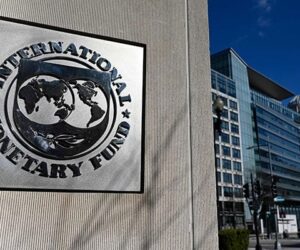Nigeria may soon return to the Eurobond market on the expectation of a United States’ rate cut in September that could further drive down borrowing costs.
This favourable global financial environment, combined with ongoing domestic economic reforms, makes it an opportune moment for Nigeria to secure funding to support its fiscal budget, analysts say.
The market remains confident that the Federal Reserve will deliver its first interest rate cut of the year at next month’s Federal Open Market Committee (FOMC) meeting, with traders’ consensus pointing to a 25 basis points (bps) reduction.
Read also: Nigeria Eurobond yields near 3-yr low as reform bets deepen
Analysts at CSL Stockbrokers highlighted in a recent report that the probability of a rate cut has surged over the past month, from 56 percent to 83 percent, driven by signs of labour market softening and the mounting political pressure on the Fed to ease the interest rate.
“If a cut materialises, we expect Eurobond yields in emerging markets to trend lower, potentially boosting the appeal of international capital markets for issuers. This could open the door for Nigeria’s return to the Eurobond market, following last year’s successful combined issuance of US$2.2 billion,” the analysts said in their recent report.
They also noted that the timing would be advantageous, given the current strong foreign investor appetite for Nigerian government securities, underpinned by improved confidence in the economy following a series of reform measures.
Ike Ibeabuchi, a financial market analyst, said Nigeria will likely tap the international debt market this year again if the rates are low.
“Nigeria may be forced to issue Eurobond as long as the borrowing rate is favourable. While investors want higher rates, the borrowing nation or entity prefers low rates and favourable market conditions.”
This year, Nigeria has seen its reforms yield macroeconomic stability, including the stability of the naira, improved oil production and progress on tax revenue. The reforms have positioned Nigeria as an investors’ delight among frontier and emerging markets.
Nigeria’s average Eurobond yields declined by 20 basis points in the previous week to 7.78 percent, levels last seen three years ago. This represents a decline from 9.51 percent at the beginning of the year, and even over 11 percent at the peak of the global tariff war.
At the compressed levels of seven percent, Nigeria is positioned to issue Eurobonds at a much lower cost than its peers such as Ivory Coast, Benin Republic, and South Africa.
Revenue shortfall
The 2025 budget had made provisions of around N1.8 trillion ($1.2 billion) in external borrowings to help finance the N13.1 trillion deficit. However, analysts believe the actual deficit could be closer to N17 trillion, driven largely by revenue shortfalls and likely fiscal slippages.
Earlier this month, Nigerian lawmakers approved up to $24 billion in external financing to support the 2025-2026 budgets, suggesting a likely Eurobond issuance.
“In our view, the government may target at least $2 billion, potentially with a ten-year maturity, to take advantage of the gap between the 2034 and 2038 papers on the Eurobond yield curve,” CSL analysts said.
The seven-year and 10-year eurobonds were issued at 9.625 percent and 10.375 percent respectively last year. They saw their yields compress by an average of 154 basis points (1.54 percent ) year-to-date, signalling improving investor sentiment and a potential reduction in borrowing costs for a new issuance.
Read also: Ecobank repays 50% Eurobond issuance, signals strong liquidity position
Analyst at CSL said that all of these factors give room for authorities to also issue a dollar green bond and a domestic dollar bond.
“That said, we expect the authorities to first focus on securing a US$2 billion dollar-denominated loan from the domestic market, which is part of the US$24 billion external financing request approved by lawmakers,” the analysts said.
This strategy would allow the government to quickly access hard currency without going through the typically longer process associated with international debt issuance.









